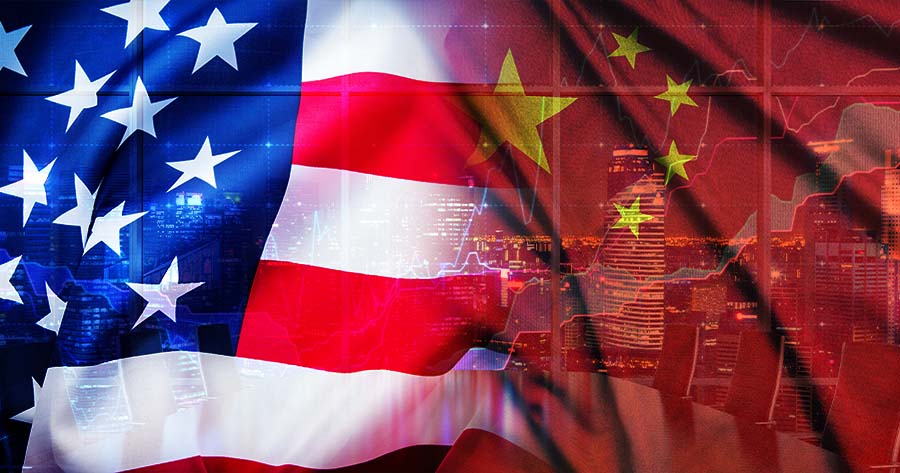Amidst escalating trade tensions, US President Donald Trump indicated that his administration is planning to engage in talks with China, suggesting a potential reprieve from the looming 10% tariff set to take effect soon. This development follows a decision by the Trump administration to delay tariffs on goods from Canada and Mexico.
During a press briefing in Washington on Monday, Trump mentioned that discussions with China were expected to occur within the next 24 hours.
Over the weekend, the US President had declared that tariffs targeting China would be implemented starting at 12:01 AM on the upcoming Tuesday. Trump emphasized that if a deal could not be reached with China, the tariffs imposed would be significantly impactful.
On Tuesday, the Hang Seng China Enterprises Index, an indicator of Chinese equities listed in Hong Kong, climbed by up to 3.6%. The offshore yuan saw a robust recovery, appreciating nearly 1% from Monday’s lowest point, trading at approximately 7.31 against the dollar.
Chinese onshore markets are set to resume trading on Wednesday after the closure for the Chinese New Year festivities.
White House Press Secretary Karoline Leavitt told Fox News that the planned call between Trump and Chinese President Xi Jinping would address the critical issue of “illegal Chinese fentanyl that is killing tens of thousands of Americans every single year.”
Following Trump’s last-minute accords with Mexico and Canada, with the postponement of the 25% tariffs imposition in exchange for stricter border measures addressing migration and drug trafficking, attention has now shifted to China.
For Beijing, any discussions between leaders are expected to include deliberations on the division of ownership for the Chinese-owned application TikTok, which the Republican leader has set a 75-day deadline for its parent company, ByteDance Ltd., to secure a US partner if it wishes to continue the operations in the United States, following national security concerns raised by officials.
In addition, Trump directed China to use its extensive surveillance capabilities to halt criminal groups responsible for the trafficking of illegal drugs. The specifics of this directive were not detailed, leaving Chinese President Xi Jinping with limited options to evade the looming tariffs. This comes even as Beijing has already committed to intensifying its crackdown on domestic chemical firms linked to the production of a lethal synthetic opioid.
The last conversation between President Trump and President Xi occurred prior to Trump’s second inauguration, focusing on topics such as trade, fentanyl, and TikTok. Trump characterized the dialogue as positive, yet within days, he proceeded to implement the threatened tariffs on China.
In response, Chinese state media expressed skepticism regarding Trump’s reasoning for the tariffs, cautioning that intertwining fentanyl and trade issues could complicate efforts to effectively address the problem.





